The women who hope to break the mould of Scottish politics
- Published
No women of colour have been elected to Scotland’s parliament in its 22-year-history.
When the Scottish Parliament was created in 1999 much was made about how it would reflect modern Scotland but fine words and good intentions have not necessarily led to equal representation.
Women make up 51% of the population but currently only hold 36% of the seats at Holyrood.
And of the 645 members elected since 1999, there has not been a single woman of colour.
If the parliament was truly representative of the population, there should have been 12.
BBC Scotland's Disclosure has been speaking to five women who are hoping to break the mould.
Kaukab Stewart
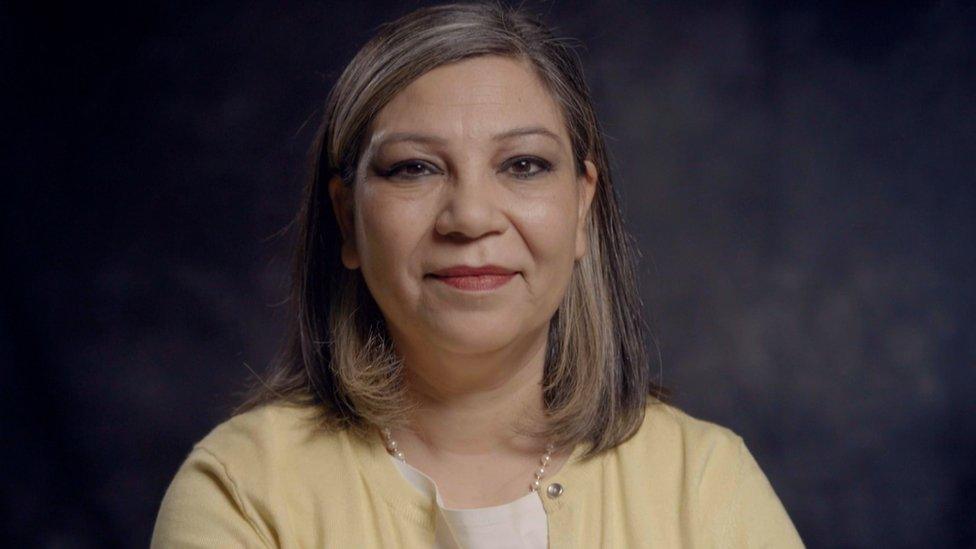
The 53-year-old teacher is standing for the SNP in Glasgow Kelvin. Ms Stewart has been a campaigner for more than 20 years and this is her fifth attempt at being elected.
She says the barriers can be quite entrenched and trying to break them down is very difficult.
"We know that people will want to select somebody who is like them," she says.
"I'm not like the majority of the population of Scotland, because I'm a different colour.
"Therefore, if people are looking for that familiarity, they're not visually going to get it from me."
She says the challenge is to be embedded in a community and to get to know people.
Ms Stewart is clear that having a parliament which represents all of Scotland's diversity is essential.
"It's important because it's a validation," she says.
"It's a sense of belonging, that the people who make decisions about shaping policies are the people that live and work and breathe in Scotland."
Nadia Kanyange
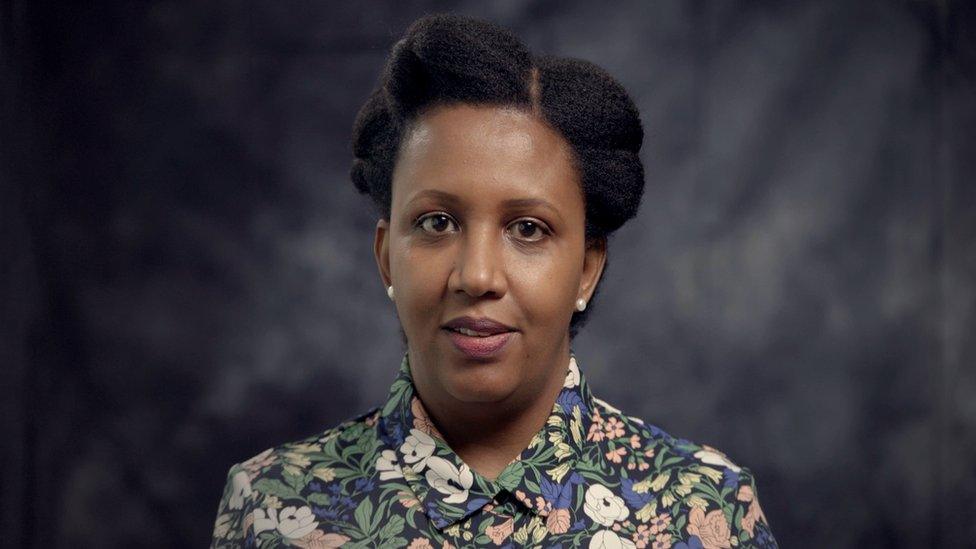
Born in Burundi, Ms Kanyange came to the UK in 2003. The 40-year-old, who recently finished university, is on the Glasgow list for the Scottish Green Party.
This is her first time standing for election and she says we need to get beyond race and gender when electing people.
"Let's normalise it," she says.
"It should not be seen as this major thing that's happening, like 'oh first black this, first black that'."
Ms Kanyange says: "Racism is everywhere, it is in the hospital, it's in schools, it's in politics.
"So the people that have jobs to do, it's not your right to disrespect or decide how you're going to treat a person.
"It's not the right thing to do. Look at what they're capable of doing, rather than what they look like."
She says people need to adjust to this mindset so society can change.
Ms Kanyange takes inspiration from Kamala Harris's recent election as the first woman of colour Vice President of the United States.
"It was very, very, very good, because yes, she might be the first, but she 'hopes' that she's not the last. And that's exactly how I feel."
Aisha Mir
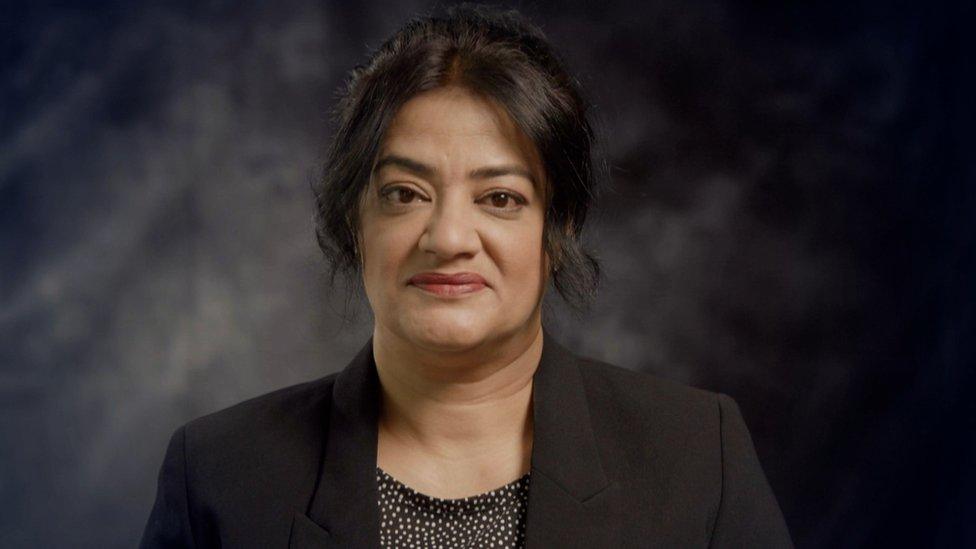
Aisha Mir, 48, is an Edinburgh businesswoman who is standing for the Scottish Liberal Democrats on the Mid-Scotland and Fife regional list.
As a Muslim, she says she has encountered barriers within her own community.
"When I stood in my first election, I approached the local mosque, to ask if I could get some time there to speak to the congregation," she says.
Ms Mir says she offered to observe religious rules, perhaps engaging with women separately.
"We went to speak to the Imam and I got shut down straight away," she says.
"I was shut down, told I shouldn't be standing, it wasn't a woman's place and it was quite astounding."
Ms Mir says: "We have to respect different cultures, traditions and faiths, absolutely.
"But we also have to call out, from within our communities, when this kind of behaviour happens because it's not right."
She says being told not to stand put "fire in my belly".
"I thought, 'right, I am so going to do this'," she says.
Pam Gosal
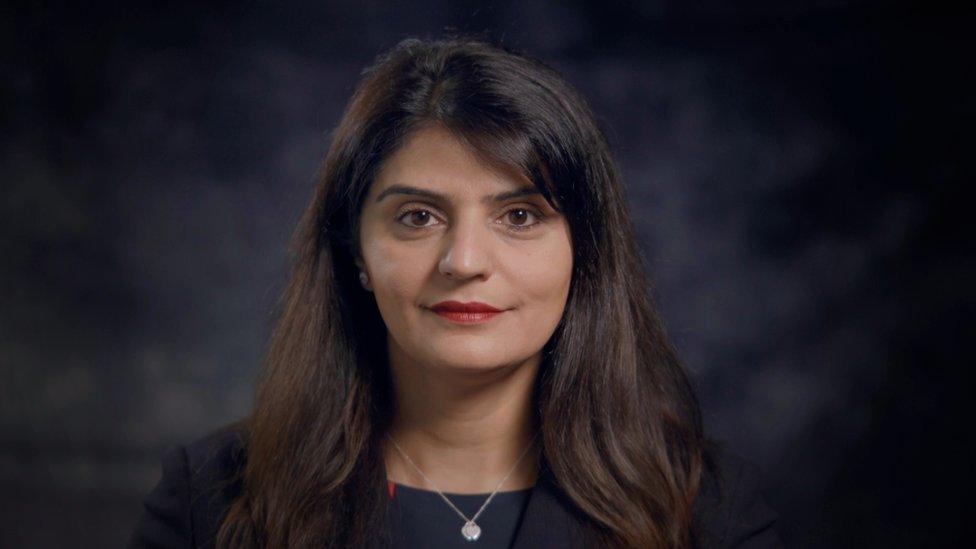
Pam Gosal, 48, is the Conservative candidate in the Clydebank and Milngavie seat.
She ran her family business before working in local government. This is her second election as a candidate.
In the 2019 UK general election, she says female candidates got a lot of social media abuse as well as face-to-face comments.
She knows standing for election makes her a public figure and therefore a target but says it does not frighten her.
Ms Gosal says she has experienced racist abuse throughout her life but it will never stop her.
"I remember what mum and dad had told us: 'Just put your head down and walk past, and don't give them eye contact'," she says.
Offensive comments on social media platforms are something she has learned to deal with.
"In the past month 'go back to your country' was one of them," she says.
"I was born in Scotland so I don't know what they were talking about."
Deena Tissera
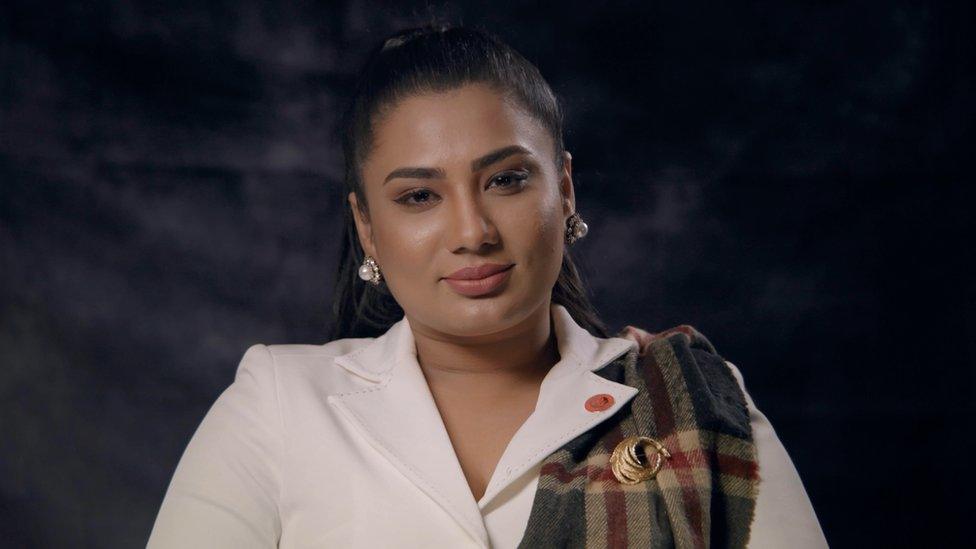
Labour has no women of colour standing for election to Holyrood this year.
Party activist Deena Tissera, who lives in Aberdeen, hopes to stand in the future, once she has completed her PhD.
The 33-year-old, who is originally from Sri Lanka, describes the lack of women of colour at Holyrood as a "system failure" which leaves her disappointed.
"I think it's the perception of what leadership is, and what a leader looks like," she says.
"That is an in-built race ideology, where most of the time a white, male-presented individual is the most electable. And so there's no point of anyone other than that running for the position."
Ms Tissera says women of colour fall through the cracks when it comes to minority representation.
"You've elected a minority male, so that covers the minority target group," she says. "And then you've elected the females, so that covers the gender target group.
"So there is representation there but there are no minority females. That's where women like myself fall down the gap."
Ms Tissera believes a truly representative parliament benefits everyone.
"We need to elect more people of colour," she says.
"It has to be diverse. There needs to be equity in power distribution, in terms of representation.
"That is when we can actually have inclusive policy coming out, which is beneficial for the growth of this country."
Disclosure: Breaking the mould is on BBC One Scotland on Monday 22 March at 22:45.